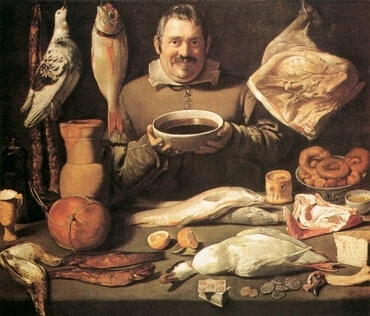2
"Reci Aronu i njegovim sinovima da sveto postupaju sa svetim prinosima Izraelaca; neka ne oskvrnjuju moje sveto ime koje oni - ta moje je! - moraju svetiti. Ja sam Jahve!
3
Reci im: 'Ako se ikad tko od vaših naraštaja primakne u stanju nečistoće k svetim prinosima što ih Izraelci posvećuju Jahvi, taj će biti uklonjen od moje nazočnosti. Ja sam Jahve!'
4
Neka nitko od Aronovih potomaka koji bude gubav ili imadne izljev ne blaguje svetih prinosa dok ne postane čist. Onaj koji se dotakne bilo čega što je mrtvo tijelo okaljalo ili onaj koji iz sebe prospe sjemeni izljev;
5
onaj koji se dotakne kakva puzavca koji ga onečisti; ili čovjeka od kojega se okalja bilo kakvom nečistoćom -
6
onaj koji se dotakne čega takva neka je nečist do večeri i neka ne blaguje svetih prinosa dok ne okupa svoje tijelo u vodi.
7
Čim sunce zađe, čist je. Poslije toga može blagovati od svetih prinosa jer mu je to hrana.
8
Neka ne jede ni strva ni što je zvjerad rastrgla. Time bi se okaljao.
9
Neka drže moje naredbe, da ne navuku na se krivnju i zbog nje, oskvrnuvši se, ne poginu. Ta ja, Jahve, njih posvećujem."
10
"Neka nijedan svjetovnjak ne blaguje od prinosa; ni ukućanin ni svećenikov sluga ne smije jesti od svetoga prinosa.
11
Ali ako svećenik steče koga novcem u svoje vlasništvo, taj to može jesti kao onaj što se rodi u njegovoj kući; oni mogu jesti od njegove hrane.
12
Ako se svećenikova kći uda za svjetovnjaka, ne smije blagovati od podizanih svetih prinosa.
13
Ali ako svećenikova kći obudovi ili bude otpuštena, a nema djece pa se vrati u očevu kuću, može se hraniti očevom hranom kao u svojoj mladosti. Nikakav svjetovnjak ne smije što od toga jesti.
14
Bude li tko iz neznanja jeo sveti prinos, neka ga nadoknadi svećeniku dodajući petinu.
15
Neka ne oskvrnjuju svetih prinosa što ih Izraelci Jahvi podižu.
16
Jedući ih, navukli bi na se krivnju koja bi ih obvezivala na nadoknadu, jer ja, Jahve, posvetio sam te prinose."
18
"Govori Aronu, njegovim sinovima i svim Izraelcima i reci im: 'Svaki čovjek doma Izraelova ili stranac u Izraelu koji donosi svoj prinos kao zavjet ili kao dragovoljan dar da se prinese Jahvi kao žrtva paljenica - da bude primljen -
19
mora prinijeti muško bez mane, bilo to goveče, ovca ili koza.
20
Nikakvo s manom na njemu nemojte prinositi jer vam to neće biti primljeno.
21
Ako tko prinosi Jahvi žrtvu pričesnicu da izvrši kakav zavjet ili učini dragovoljan prinos, bilo od krupne ili sitne stoke, ta životinja, da bude primljena, mora biti bez mane; nikakve mane na njoj ne smije biti.
22
Nikakvu slijepu, ili hromu, ili osakaćenu, gušavu, šugavu ili krastavu životinju, nikakvu takvu Jahvi nemoj prinositi niti ikakvu takvu na žrtvenik kao paljenu žrtvu Jahvi polagati.
23
Junca ili ovcu s kakvim udom protegnutim ili prikaćenim možeš prinijeti kao dragovoljan prinos, ali kao žrtva zavjetnica neće biti primljena.
24
Jahvi nemojte prinositi životinje sa zgnječenim, stučenim, rastrgnutim ili odsječenim mošnjama. To u svoj zemlji ne činite
25
niti takvo što primajte od stranca da to prinesete kao hranu svoga Boga. S manom su jer su osakaćene. Zato vam neće biti primljene.'"
27
"Kad se tele oteli, janje se ojanji ili se kozle okozi, sedam dana neka ostane uza svoju majku. Od osmoga dana može biti primljeno kao paljena žrtva Jahvi.
28
Ne koljite krave ni ovce u isti dan s njezinim mladim.
29
Kad Jahvi žrtvujete žrtvu zahvalnicu, žrtvujte je tako da budete primljeni.
30
Neka se žrtva blaguje onoga istog dana; od nje ništa ne ostavljajte za ujutro. Ja sam Jahve!"
31
"Moje zapovijedi držite i vršite ih. Ja sam Jahve!
32
Ne oskvrnjujte moga svetog imena, nego neka budem proglašen svetim među Izraelcima - ja, Jahve, koji vas posvećujem.
33
Ja koji sam vas izbavio iz zemlje egipatske da budem vaš Bog, ja, Jahve."







